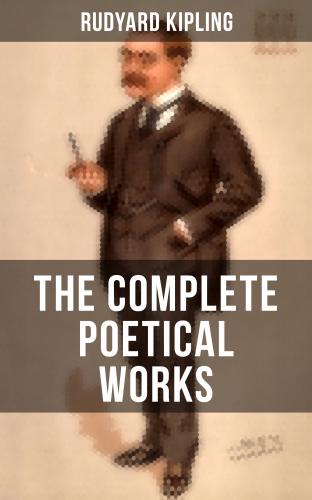Know Jane would just have let it lie.
But 'twas a telegram instead,
Marked "urgent," and her duty plain
To open it. Jane Austen read:
"Your Lilly's got a cough again.
Can't understand why she is kept
At your expense." Jane Austen wept.
It was a misdirected wire.
Her husband was at Shaitanpore.
She spread her anger, hot as fire,
Through six thin foreign sheets or more.
Sent off that letter, wrote another
To her solicitor—and mother.
Then Belial Machiavelli saw
Her error and, I trust, his own,
Wired to the minion of the Law,
And traveled wifeward—not alone.
For Lilly—thirteen-two and bay—
Came in a horse-box all the way.
There was a scene—a weep or two—
With many kisses. Austen Jane
Rode Lilly all the season through,
And never opened wires again.
She races now with Belial. This
Is very sad, but so it is.
Possibilities
Ay, lay him 'neath the Simla pine—
A fortnight fully to be missed,
Behold, we lose our fourth at whist,
A chair is vacant where we dine.
His place forgets him; other men
Have bought his ponies, guns, and traps.
His fortune is the Great Perhaps
And that cool rest-house down the glen,
Whence he shall hear, as spirits may,
Our mundane revel on the height,
Shall watch each flashing 'rickshaw-light
Sweep on to dinner, dance, and play.
Benmore shall woo him to the ball
With lighted rooms and braying band;
And he shall hear and understand
"Dream Faces" better than us all.
For, think you, as the vapours flee
Across Sanjaolie after rain,
His soul may climb the hill again
To each field of victory.
Unseen, who women held so dear,
The strong man's yearning to his kind
Shall shake at most the window-blind,
Or dull awhile the card-room's cheer.
@In his own place of power unknown,
His Light o' Love another's flame,
And he an alien and alone!
Yet may he meet with many a friend—
Shrewd shadows, lingering long unseen
Among us when "God save the Queen"
Shows even "extras" have an end.
And, when we leave the heated room,
And, when at four the lights expire,
The crew shall gather round the fire
And mock our laughter in the gloom;
Talk as we talked, and they ere death—
Flirt wanly, dance in ghostly-wise,
With ghosts of tunes for melodies,
And vanish at the morning's breath.
Christmas in India
Dim dawn behind the tamarisks—the sky is saffron-yellow—
As the women in the village grind the corn,
And the parrots seek the riverside, each calling to his fellow
That the Day, the staring Easter Day is born.
Oh the white dust on the highway! Oh the stenches in the byway!
Oh the clammy fog that hovers o'er the earth;
And at Home they're making merry 'neath the white and scarlet berry—
What part have India's exiles in their mirth?
Full day behind the tamarisks—the sky is blue and staring—
As the cattle crawl afield beneath the yoke,
And they bear One o'er the field-path, who is past all hope or caring,
To the ghat below the curling wreaths of smoke.
Call on Rama, going slowly, as ye bear a brother lowly—
Call on Rama—he may hear, perhaps, your voice!
With our hymn-books and our psalters we appeal to other altars,
And today we bid "good Christian men rejoice!"
High noon behind the tamarisks—the sun is hot above us—
As at Home the Christmas Day is breaking wan.
They will drink our healths at dinner—those who tell us how they love us,
And forget us till another year be gone!
Oh the toil that knows no breaking! Oh the Heimweh, ceaseless, aching!
Oh the black dividing Sea and alien Plain!
Youth was cheap—wherefore we sold it.
Gold was good—we hoped to hold it,
And today we know the fulness of our gain.
Grey dusk behind the tamarisks—the parrots fly together—
As the sun is sinking slowly over Home;
And his last ray seems to mock us shackled in a lifelong tether.
That drags us back howe'er so far we roam.
Hard her service, poor her payment—she is ancient, tattered raiment—
India, she the grim Stepmother of our kind.
If a year of life be lent her, if her temple's shrine we enter,
The door is shut—we may not look behind.
Black night behind the tamarisks—the owls begin their chorus—
As the conches from the temple scream and bray.
With the fruitless years behind us, and the hopeless years before us,
Let us honor, O my brother, Christmas Day!
Call a truce, then, to our labors—let us feast with friends and
neighbors,
And be merry as the custom of our caste;
For if "faint and forced the laughter," and if sadness follow after,
We are richer by one mocking Christmas past.
Pagett, M.P
